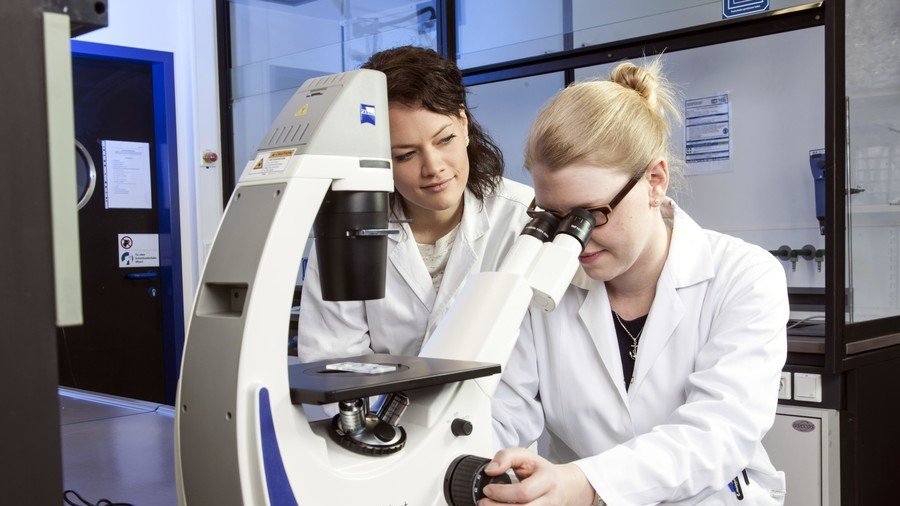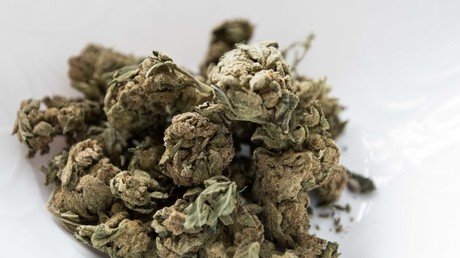Researchers say hate for body odor means you vote Tory... here's some other weird scientific studies

A study has determined that if you hate body odor then you probably vote right wing... seems legit. It's not the first time scientists have researched some strange things – so here's a list of some of their weirder studies.
Body odor = right wing voter
Okay, so this has been mentioned already, but it is hard to believe that someone actually funded this. A team of scientists have apparently come to the conclusion that authoritarian attitudes may be partly rooted in a biological urge to avoid catching diseases from unfamiliar people. Nothing to do with a respect for basic hygiene, then? Duly noted.
Why do old men have big ears?
In July 1993, some clever person observed that old men usually have large ears. Some agreed, some disagreed – and thus a study was born.
Two years later, James A. Heathcote submitted his findings to the British Medical Journal. The study confirmed that old men usually have bigger ears, but concluded on the following note: “why ears should get bigger when the rest of the body stops growing is not answered by this research.” Another of life’s great mysteries shall remain unsolved.
The brand personality of rocks
This utterly ridiculous study investigated how people personify inanimate objects… in this case, rocks. Using Aaker’s brand personality scale – a tool used in marketing research – the study applies Aaker’s principles to determine the brand personality of rocks.
Acasta Gneiss, Canada The oldest known rock on earth, 4.031 billion years oldTake that creationists... 😏#atheist#atheism#religionpic.twitter.com/SWEALpqDce
— Sec (@SecularScarlet) February 27, 2018
During the research pictures of three rocks were put in front of 225 Kiwi students who were then asked which personality traits applied to each. The rocks’ “personalities” were described in great detail, including as “a big New York type businessman, rich, smooth, maybe a little shady,” “a gypsy or a traveller, a hippie” and “liberal, attractive and female.”
Thrilling stuff, so well done to Sarah Forbes from the University of Birmingham and her colleagues in New Zealand and Canada. They are the ones we have to thank for this gem of a research topic.
The Neural Bases of Disgust for Cheese: An fMRI Study
Okay, this one I get. This study is looking into why some people hate cheese… obviously so they can cure them of such a horrendous ailment, right?
Wrong. The study didn’t look at how to cure those involved of such an erroneous affliction, but merely exposed cheese-haters to cheese, which – wait for it – they were disgusted by.
In the end the research found that “the study of food disgust and aversion in humans is difficult because it is rare to find individuals who present disgust for the same type of food… our findings show that a higher-than-expected proportion of individuals are disgusted by cheese than by other food categories.”
So it appears that this one was a total waste of time. That really is a surprise.
GoatMan: How I Took a Holiday from Being Human
Thomas Thwaites turned his weird experience into a book. He built a goat exoskeleton – in other words artificial legs, helmet, chest protector, a raincoat from his mum, and a prosthetic goat stomach to digest grass (with the help of a pressure cooker and campfire) – before setting off across the Alps with a herd of his fellow goats.
just realized I was on a crit with the goat man this morning @Thomas_Thwaites who now teaches at RISD pic.twitter.com/XmueFkulph
— Paul Soulellis (@soulellis) October 11, 2017
Because of course you do. This is what any sane, normal human being does in their spare time. Did he discover what it truly means to be human – or goat?
The short answer is inconclusive. He turned his research into a book, which RT’s journalist refused to read on the straightforward ground of its sheer ridiculousness. Guess we’ll never know… unless you buy his book.
Think your friends would be interested? Share this story!














